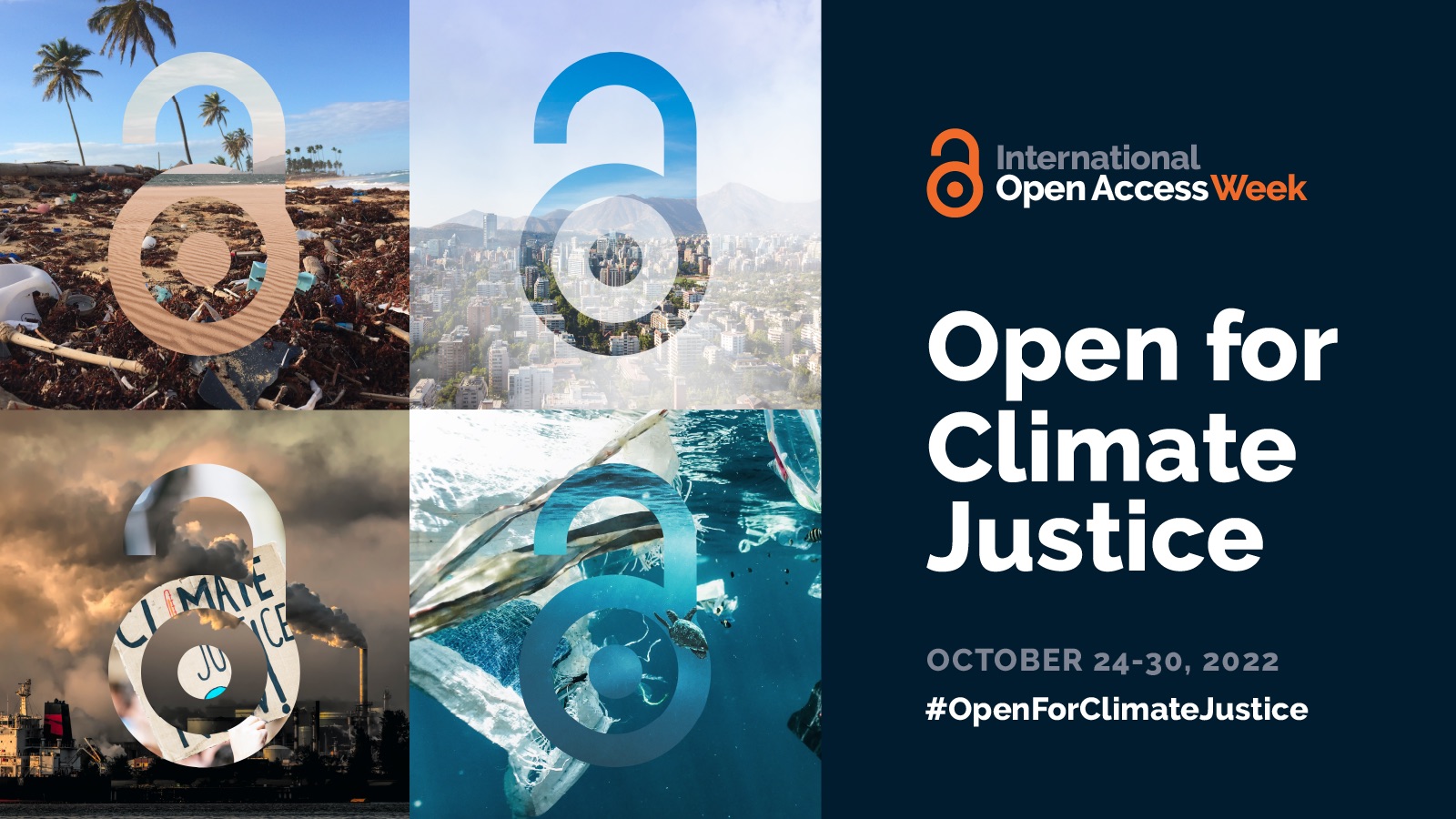
In recognition of International Open Access Week, Érudit is highlighting the importance of access to scholarly publications in the context of climate change. Open and rapid dissemination of research results is a key element in this fight.
The theme of this year’s Open Access Week, which takes place around the world from October 24 to 30, is climate justice. According to the United Nations, climate justice is the explicit recognition that the climate crisis has far-reaching effects, and the impacts are “not be[ing] borne equally or fairly, between rich and poor, women and men, and older and younger generations” (Source). Climate justice examines climate issues through the lens of equality by drawing on ethical, moral, justice and policy approaches, rather than just environmental aspects.
Climate change is one of the biggest challenges facing humanity today, and its effects—from habitat loss to psychological repercussions—are discussed in scholarly journals across a wide range of disciplines.
The selection of articles offered here provides an overview of climate justice issues from such diverse perspectives as anthropology, ethnology, law, water, environment, education, ethics, philosophy, and management.
All articles are available in open access.
Enjoy your reading!
André, P. & Bourban, M. (2016). Éthique et justice climatique : entre motivations morales et amorales. Les ateliers de l’éthique / The Ethics Forum, 11(2-3), 4–27.
In a situation of urgency, philosophers can no longer rely exclusively on ideal theories of climate justice grounded on purely moral motives. The article proposes to give serious consideration to the problem of motivation to act by putting forward some prudential reasons for tackling climate change—with the aim not of replacing existing but inadequate moral motivations, but of strengthening them.
Britton, K. & Hillerdal, C. (2019). Archaeologies of Climate Change: Perceptions and Prospects. Études Inuit Studies, 43(1-2), 265–287.
Among the many casualties of contemporary climatic change is the archaeological heritage of Arctic and subarctic regions, as warming, erratic weather patterns, coastal erosion, and melting permafrost threaten the anthropogenic and ecological records found in northern environments. Archaeology is uniquely positioned to provide long-term perspectives on human responses to climatic shifts, and to inform on the current debate.
Dwyer, J. (2022). Van Rensselaer Potter, Climate Change, and Justice. Canadian Journal of Bioethics / Revue canadienne de bioéthique, 5(1), 92–102.
When Van Rensselaer Potter coined the English word “bioethics”, he envisioned a field that would bring together biological understanding and ethical values to address global environmental problems. Following Potter’s broad vision of bioethics, the article explores ethical ideas that we need to address climate change.
Kronk Warner, E. A. & Abate, R. S. (2013). International and Domestic Law Dimensions of Climate Justice for Arctic Indigenous Peoples. Revue générale de droit, 43, 113–150.
The Arctic region is in crisis from the effects of climate change. These impacts pose a particular threat to Arctic indigenous communities. Because of the disproportionate impacts of climate change, these indigenous communities are environmental justice communities. Through case studies, the article underscores the failure of international and domestic forums’ consideration of the special situation of Arctic indigenous peoples as environmental justice communities.
Laigle, L. (2019). Justice climatique et mobilisations environnementales. VertigO, 19(1).
The idea of climate justice, originally conceived in a distributive sense, is bound to evolve given the social and environmental injustices generated by climate change. How can we understand the transformations of this notion? How do environmental justice approaches and analyses of citizen mobilizations help us to define its contours?
Meira, P. & González Gaudiano, É. (2016). Les défis éducatifs du changement climatique : La pertinence de la dimension sociale. Éducation relative à l’environnement, 13(2).
Educational programs on this vital topic consist of processes of scientific literacy based on information about the findings of climate science, without considering the respective social experience or a series of social and cultural processes intervening in building a social representation of this phenomenon. That is essential for focusing properly on the challenges for education and communication.
Neglo, A. (2022). L’harmonisation des mesures d’adaptation au changement climatique dans la planification territoriale. Revue Organisations & territoires, 31(1), 131–142.
Natural disasters and their consequences, along with the vulnerability of populations and social issues, have led to political, social, economic and environmental reforms in numerous areas of the world. These events had impacts on the development of societies and led to a paradigm shift in the vision of territorial development. Land use planning is therefore no longer limited to socio-economic aspects, but also to environmental and ethical aspects that are integrated into the sustainable development concept.
Torre-Schaub, M. (2016). L’affirmation d’une justice climatique au prétoire (quelques propos sur le jugement de la Cour du district de La Haye du 24 juin 2015). Revue québécoise de droit international / Quebec Journal of International Law / Revista quebequense de derecho internacional, 29(1), 161–183.
The contribution of civil society to the cause of climate change and the mobilization of law in favor of this cause appear clearly when the institutional framework and the capacity of the state to take charge of the climatic problem are insufficient or mistaken. To this must be added the absence of well-established, precise and sufficiently punitive rules of responsibility. In this context, the “climate justice” concept is widely mobilized. However, this concept is not sufficiently defined, and thus has low operative value.







